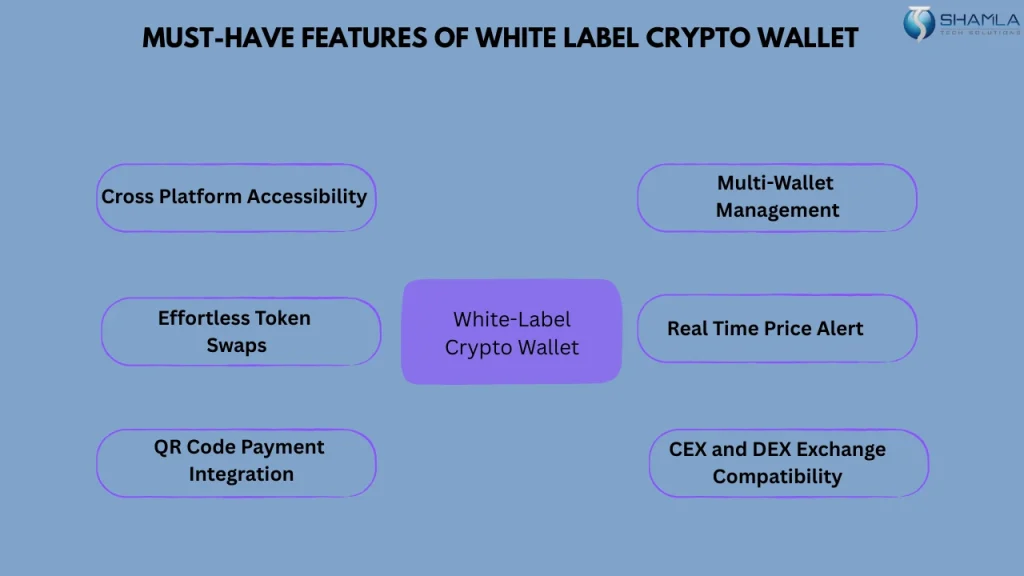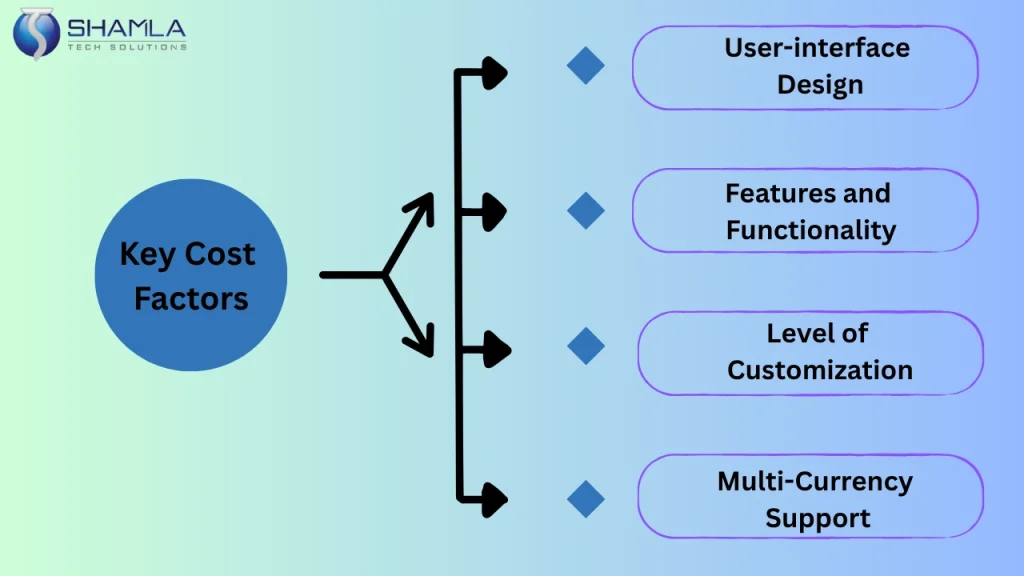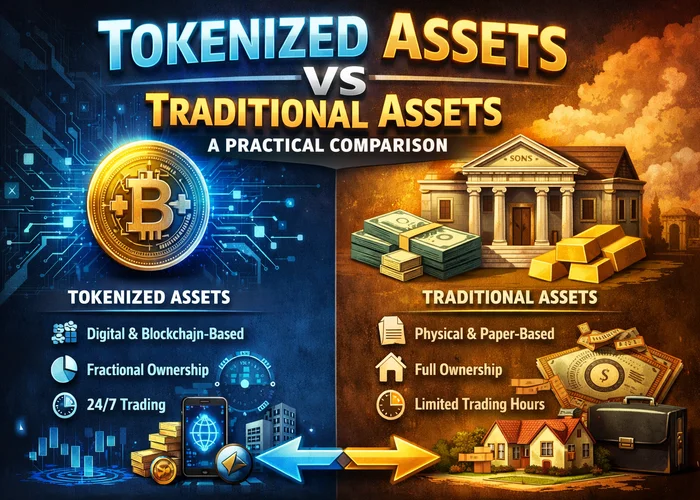The world of digital assets is growing at an incredible rate. More and more firms who want to get into the crypto industry are using white label solutions since they are quick to set up and cost-effective. But there is still one important question: How much will it cost to build a white label crypto wallet in 2025? In this detailed tutorial, we’ll go over all the things that affect the cost of launching a white label crypto wallet, compare it to custom development, and show you how to get the most out of your investment in white label crypto wallet creation.
Understanding the Investment Landscape
The Cost to launch White label crypto wallet might be very different depending on how complicated it is, what features it has, and which service you choose. Basic entry-level solutions cost to launch White label crypto wallet between $10,000 and $20,000, whereas enterprise-grade platforms might cost more than $250,000. This range of Cost to launch White label crypto wallet shows the wide range of technical needs and levels of customization that are accessible in the current market for developing white label crypto wallets.
Most white label crypto wallet creation firms have three different pricing structures: one-time license fees that range from $25,000 to $150,000; subscription-based SaaS models that cost to launch White label crypto wallet $500 to $5,000 a month; and revenue-sharing arrangements that take 0.5% to 3% of transaction volume. Debutinfotech +3 Each model has its own pros and cons that rely on the goals of the organization and how it wants to handle cash flow.
The most important thing that affects the Cost to launch White label crypto wallet solutions is how complicated the features are. Basic wallets that enable you send and receive money just need a little amount of money to get started. On the other hand, complex wallets that support DeFi integration, NFTs, and multi-signature capabilities might cost 200–400% more. Just adding support for many currencies to the Community can add $2,000 to $8,000 to the base cost of starting a white label crypto wallet project.

White Label Crypto Wallet Cost Breakdown
Feature/Service | Estimated Cost (USD) |
Basic White Label Wallet | $15,000 – $30,000 |
Advanced Customization | $10,000 – $30,000 |
Security Audit | $5,000 – $15,000 |
Multi-Currency Support | $2,000 – $8,000 |
NFT & Staking Integration | $5,000 – $15,000 |
Maintenance & Support (annual) | $2,000 – $5,000 |
Licensing & Compliance | $5,000 – $20,000 |
Marketing & Promotion | $3,000 – $10,000 |
What’s Included in the Cost to Launch White Label Crypto Wallet?
- Making a white label crypto wallet (core wallet, UI, branding)
- White-label crypto wallet services (integration, help, updates)
- Cryptocurrency wallet with no brand name (supports several currencies, NFTs, and staking)
- White label wallet development business (project management and quality assurance)
- White label crypto wallet development services (custom features, compliance)
- White label development (APIs, SDKs, and interaction with other services)
- White label cryptocurrency exchange (if it comes with a wallet)
How to Reduce the Cost to Launch White Label Crypto Wallet?
- Start with a basic package and scale features as user demand grows.
- Choose essential features first; add advanced ones later.
- Work with a reputable white label wallet development company to avoid hidden costs.
- Negotiate annual support and upgrade packages upfront.
- Opt for modular white label crypto wallet development to add features over time.
Additional Costs to Consider
Category | Estimated Cost (USD) | Description |
Security Audit | $5,000 – $15,000 | Vulnerability assessment and penetration testing |
Maintenance & Updates | $2,000 – $5,000/year | Regular updates, bug fixes, and server maintenance |
Licensing & Compliance | $5,000 – $20,000 | Legal fees, regulatory filings, and compliance modules |
Advanced Testing | $3,000 – $8,000 | Device compatibility and stress testing |
Transaction Costs | $1,000 – $5,000/month | Blockchain network and payment processing fees |
Marketing & Promotion | $3,000 – $10,000 | User acquisition and brand building |
Market-Leading White Label Development Providers
- White label crypto wallet development is dominated by several suppliers with different value propositions and pricing structures. Three types of white label wallet development companies exist: budget-focused providers that support 600+ cryptocurrencies at 8-12 times lower Cost to launch White label crypto wallet than competitors, enterprise-focused firms with proven track records in hundreds of businesses, and rapid-deployment specialists who can launch in two months using low-code technology.
- White label crypto development advantages from geographical cost differences. Eastern European teams charge $30–$75 per hour, while North American and Western European teams Cost to launch White label crypto wallet $100–$250. Asian development centers are the cheapest at $16–$50 per hour, making smart outsourcing essential for white label crypto wallet project Cost to launch White label crypto wallet optimization.
- White label bitcoin wallet platforms from established suppliers can save up to $100,000 compared to custom creation. White label crypto wallet implementations are faster and cheaper with their pre-configured modules and infrastructure.
Technical Architecture and Development Phases
- Development phases contribute different percentages to the total Cost to launch White label crypto wallet solutions. Research and planning cost 5-10%, UI/UX design 10-15%, backend development 20-25%, and security implementation 15-20%.
- White-label crypto wallet service providers divide development into seven phases, taking 3-12 months for specialized solutions and 2-8 weeks for platforms. This huge timeline reduction is one of the biggest advantages of white-label bitcoin exchange integrated solutions over traditional development methods.
- Advanced security features substantially affect white-label crypto wallet launch costs. Multi-signature wallets cost $20,000–$40,000, biometric authentication costs $5,000–$15,000, and hardware wallet integration $15,000–$30,000. These security investments are becoming more critical as regulations and user expectations change.
Hidden Costs and Ongoing Expenses
- After construction, white label crypto wallets incur significant recurring costs that are often disregarded in budgeting. Security audits cost $25,000–$75,000, while comprehensive AML/KYC services can cost $100,000+ annually. Depending on scale and transaction volume, cloud hosting Cost to launch White label crypto wallet $500–$5,000 monthly.
- Annual white label wallet development upkeep costs 15-20% of initial development costs. Maintaining competitiveness and regulatory compliance requires regular upgrades, security fixes, and product enhancements. Many white label crypto wallet development businesses incorporate these ongoing fees into service agreements for more predictable costs.
- White label crypto wallet launch costs increasingly include regulatory compliance. KYC/AML integration costs $1–5 per user verification, while legal consultations and regulatory monitoring cost $500–$1,000 monthly. Jurisdiction and target market criteria greatly affect these costs.
ROI Analysis and Business Benefits
- Despite high startup costs, white label crypto wallets create many revenue sources. Transaction fees take 0.5-3% of volume, staking services charge 5-15% commission, and premium subscriptions cost $5-$50 per user. Successful implementations generate cash within 6-18 months.
- White label cryptocurrency wallets are faster to market than custom creation. While proprietary solutions take 12-24 months to install, white label crypto development platforms allow market access in 2-8 weeks. This acceleration gives first-movers an edge in fast-changing markets.
- Case studies show how strategic white label wallet development company partnerships benefit businesses. Within six months of releasing its white label cryptocurrency exchange, one fintech business had 10,000 active customers and positive cash flow in their first quarter. Mining pool operators say integrated incentive distribution systems boost efficiency and participation.
Market Trends and Future Outlook
- The white label cryptocurrency wallet creation business is growing, with 2024 download volumes nearing 2021 levels. DeFi integration and NFT and cross-chain compatibility are now standard features rather than premium features.
- Emerging technologies are changing white label cryptocurrency wallet startup costs. Account abstraction, AI integration, and quantum-resistant security are raising development costs but improving user experiences and security. White label bitcoin exchange integrations are improving, enabling complicated trading techniques and yield farming.
- Major jurisdictions’ regulatory changes are standardizing compliance and creating new commercial opportunities. The EU’s MiCA regulation has explicit parameters for white label crypto wallet services, which may save long-term compliance costs and ensure market access across 27 member states.
Strategic Implementation Recommendations
- Effective cost-to-launch white label cryptocurrency exchange services implementations involve provider selection based on technical capabilities, security history, and support quality. Businesses should prefer providers with extensive implementation experience, robust feature sets, and regulatory compliance.
- White label development strategies should stress MVP methodologies for market entry and feature extension based on user feedback and market validation. This iterative strategy reduces white label crypto wallet services launch costs while allowing for future development and scaling.
- Budgets should include hidden expenditures and continuous maintenance from the start. During the first year, successful implementations invest 60-70% of budgets to initial development and 30-40% to operations, compliance, and enhancement.
Competitive Analysis and Market Positioning
- White label crypto wallet development services range from basic to enterprise-grade. Premium white label wallet creation companies prioritize security, compliance, and advanced features, whereas entry-level providers prioritize speed and affordability.
- Some market leaders prioritize merchant integration and transaction volume management, some multi-signature security and business requirements, and others low-code development for rapid deployment. Optimizing white label crypto wallet investment costs requires understanding these specializations.
- Some white label bitcoin exchange providers have built-in trading functionality, while others require exchange agreements. These integration methods greatly affect white label crypto wallet startup costs and income possibilities.

Key Factors Affecting the Cost to Launch White Label Crypto Wallet
1. Feature Set & Customization
The more features and customizations you require, the higher the cost to launch white label crypto wallet. Essential features include multi-currency support, wallet backup, two-factor authentication, and user-friendly UI. Advanced features like NFT support, staking, in-app swaps, and fiat on-ramps will increase the investment.
2. Security Protocols
Security is non-negotiable in crypto. White label crypto wallet development companies offer features like multi-signature wallets, cold storage, DDoS protection, and regular security audits. The integration of these protocols is a significant factor in the cost to launch white label crypto wallet.
3. Platform & Device Support
Supporting iOS, Android, and web platforms raises development costs but broadens your user base. Some providers charge extra for cross-platform compatibility in white label crypto wallet development.
4. Compliance & Licensing
Meeting regulatory requirements (KYC/AML, GDPR) is crucial. White label crypto wallet development services often include compliance modules, but complex jurisdictions or additional licensing will add to the cost to launch white label crypto wallet.
5. Maintenance & Upgrades
Ongoing support, updates, and technical maintenance are essential for security and user satisfaction. Most white label wallet development companies offer annual support packages, which should be factored into your total cost to launch white label crypto wallet.
Conclusion
White label crypto wallet launch costs are a strategic investment opportunity in the fast-growing digital asset ecosystem. Businesses can find solutions within their budget and feature requirements with Cost to launch White label crypto wallet from $10,000 for basic deployments to $250,000+ for enterprise-grade platforms.
White label crypto development success requires careful provider selection, realistic budget allocation including continuing costs, and strategic feature prioritization based on market needs. For organizations wishing to benefit on cryptocurrency market growth, white label crypto wallet development offers compelling ROI and huge time-to-market advantages over custom development.
Due to increased security requirements, regulatory compliance needs, and competitive feature expectations, white label crypto wallet solutions will likely cost more as the global crypto wallet market grows to over $90 billion by 2030. Businesses investing in this disruptive technology area benefit from targeted white label development alliances for early market entrance.








